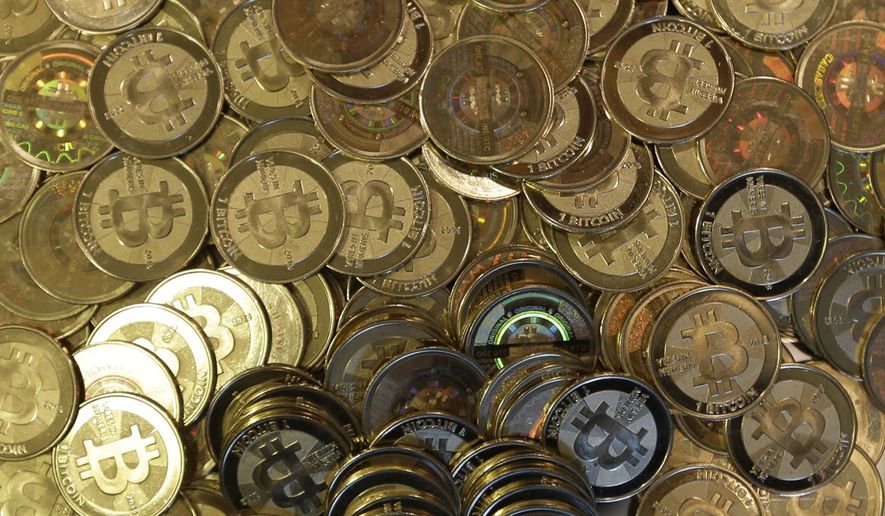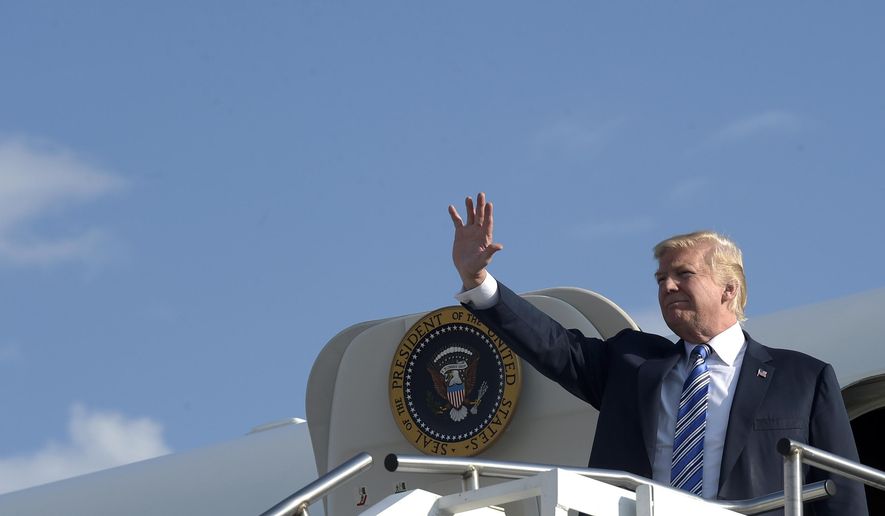
The value of the shadowy digital currency known as bitcoin has jumped
to record highs this month, sending shock waves through America’s
defense and intelligence agencies, which fear its growth signals a surge
in use by terrorists, drug kingpins, white-collar criminals and Russian
cybercriminals who don’t want to be tracked by the world’s governments.
This summer, the U.S. Treasury’s Financial Crimes Enforcement Network (FinCEN), the Department of Justice and scores of European illicit finance law enforcement officials have fought back with a wave of operations against Russian cybercriminals. Late last month, they shuttered AlphaBay and Hansa — two of the biggest “dark web” contraband marketplaces rife with the illegal sale of guns, drugs and other forbidden merchandise.
In an even more startling sign of the battle raging around bitcoin, a FinCEN-led international illicit financing task force arrested a Russian “mastermind of organized crime” on a small beachside village in northern Greece less than two weeks ago.
Alexander Vinnik, who is accused of laundering more than $4 billion worth of illegal funds using bitcoin accounts, operated BTC-e, one of the world’s oldest bitcoin exchanges.
U.S. authorities accuse Mr. Vinnik of facilitating crimes including drug trafficking, public corruption, hacking, fraud, identity theft and tax refund fraud.
“Just as new computer technologies continue to change the way we engage each other and experience the world, so too will criminals subvert these new technologies to serve their own nefarious purposes,” Brian Stretch, U.S. attorney for the Northern District of California, said about BTC-e.
Mr. Vinnik was arrested amid worldwide cyberhavoc triggered by massive WannaCry’s Bitcoin ransomware attacks in May and June. The attacks forced a production shutdown at Renault auto plans, crashed computers at Britain’s National Health Service and targeted India’s ATM network.
In Britain, screenshots on social media showed National Health Service computer screens with messages demanding $300 worth of Bitcoin to regain access to files.
While cyberattacks have increasingly targeted businesses around the world, bitcoin ransom attacks, especially in the U.S., are skyrocketing. The FBI’s Internet Crime Complaint Center reported it received 2,673 ransomware incidents last year — nearly double the figure from 2014.
Despite Moscow’s denials of meddling in the U.S. presidential election, major investigations also continue into Russian hackers suspected of using cyberattacks to undermine or influence the vote.
A little-noticed provision of the law passed by Congress and signed by President Trump this month imposing new sanctions for North Korea, Iran and Russia mandated the formulation of a national security strategy to combat “the financing of terrorism and related forms of illicit finance.” Among those forms, according to the text of the law, were “so-called cryptocurrencies [and] other methods that are computer, telecommunications, or internet-based” for cybercrime.
Bitcoin’s wild rise
A creation of the digital age that reflects the libertarian impulses of much of the online community, bitcoins were launched in 2009 by a shadowy figure named Satoshi Nakamoto, who has never publicly come forward. Many analysts have suggested that he never existed.
The currency’s unique power comes from its independency and lack of reliance on any single government for its legitimacy. Unlike regular money, digital or cryptocurrencies are not connected to banks or governments and allow anonymous purchases or money exchanges completely outside the realm of banks, credit card firms or other third parties. Instead, the coins exist because users “mine” them by lending their computing power to verify other users’ transactions.
This anonymity has brought instability to bitcoin values. Over the past month, however, prices are up more than 30 percent. According to the CoinDesk Bitcoin Price Index, a bitcoin traded for more than $3,000 — a record high — this past weekend.
The surge follows a spinoff another cryptocurrency, Bitcoin Cash.
Anticipation of the spinoff sent bitcoin values spiraling last month as market analysts predicted a “civil war” with the rival. The opposite appears to have occurred with the spinoff driving up bitcoin’s value.
Market analysts say the value surge demonstrated bitcoin’s resiliency in addition to a growing public appetite for cryptocurrencies.
On Thursday, bitcoins traded at $3,439.55 per coin, driving the overall market value of all existing bitcoins to $56 billion.
Adding bitcoin’s overall value to other cryptocurrencies such as Ethereum and Litecoin and the total market capitalization of such digital cash is roughly $120 billion.
America’s defense and intelligence agencies, FinCEN in particular, pride themselves on the U.S. government’s ability to track and disrupt the illicit financial networks that work through traditional banks and finance channels.
This summer’s crackdowns on illicit bitcoin activity has been considerable, but the dramatic surge in the currency’s overall value poses even more challenges.
Yaya Fanusie, a former counterterrorism analyst for the CIA, is credited with identifying the first verifiable instance of a terrorist organization attempting to use bitcoin to raise funds. He now runs analysis for the Center on Sanctions and Illicit Finance at the Foundation for Defense of Democracies and told The Washington Times in an interview that the increased volume of bitcoin trading in itself is not the concern.
“The national security concern is not that criminals will use this type of technology — they use all technologies,” Mr. Fanusie said. “The policy question is: How do you deal with something that governments can’t control?”
He said the U.S. needs to engage with the cryptocurrencies as much as possible and pointed to Defense Department procurement experiments already underway.
“Bitcoin is like a rebellious teenager,” he said. “It wants to do its own thing. So what do you do? Do you ban it? No, you want to have a good relationship with it and influence how it develops.”
This summer, the U.S. Treasury’s Financial Crimes Enforcement Network (FinCEN), the Department of Justice and scores of European illicit finance law enforcement officials have fought back with a wave of operations against Russian cybercriminals. Late last month, they shuttered AlphaBay and Hansa — two of the biggest “dark web” contraband marketplaces rife with the illegal sale of guns, drugs and other forbidden merchandise.
In an even more startling sign of the battle raging around bitcoin, a FinCEN-led international illicit financing task force arrested a Russian “mastermind of organized crime” on a small beachside village in northern Greece less than two weeks ago.
Alexander Vinnik, who is accused of laundering more than $4 billion worth of illegal funds using bitcoin accounts, operated BTC-e, one of the world’s oldest bitcoin exchanges.
U.S. authorities accuse Mr. Vinnik of facilitating crimes including drug trafficking, public corruption, hacking, fraud, identity theft and tax refund fraud.
“Just as new computer technologies continue to change the way we engage each other and experience the world, so too will criminals subvert these new technologies to serve their own nefarious purposes,” Brian Stretch, U.S. attorney for the Northern District of California, said about BTC-e.
Mr. Vinnik was arrested amid worldwide cyberhavoc triggered by massive WannaCry’s Bitcoin ransomware attacks in May and June. The attacks forced a production shutdown at Renault auto plans, crashed computers at Britain’s National Health Service and targeted India’s ATM network.
In Britain, screenshots on social media showed National Health Service computer screens with messages demanding $300 worth of Bitcoin to regain access to files.
While cyberattacks have increasingly targeted businesses around the world, bitcoin ransom attacks, especially in the U.S., are skyrocketing. The FBI’s Internet Crime Complaint Center reported it received 2,673 ransomware incidents last year — nearly double the figure from 2014.
Despite Moscow’s denials of meddling in the U.S. presidential election, major investigations also continue into Russian hackers suspected of using cyberattacks to undermine or influence the vote.
A little-noticed provision of the law passed by Congress and signed by President Trump this month imposing new sanctions for North Korea, Iran and Russia mandated the formulation of a national security strategy to combat “the financing of terrorism and related forms of illicit finance.” Among those forms, according to the text of the law, were “so-called cryptocurrencies [and] other methods that are computer, telecommunications, or internet-based” for cybercrime.
Bitcoin’s wild rise
A creation of the digital age that reflects the libertarian impulses of much of the online community, bitcoins were launched in 2009 by a shadowy figure named Satoshi Nakamoto, who has never publicly come forward. Many analysts have suggested that he never existed.
The currency’s unique power comes from its independency and lack of reliance on any single government for its legitimacy. Unlike regular money, digital or cryptocurrencies are not connected to banks or governments and allow anonymous purchases or money exchanges completely outside the realm of banks, credit card firms or other third parties. Instead, the coins exist because users “mine” them by lending their computing power to verify other users’ transactions.
This anonymity has brought instability to bitcoin values. Over the past month, however, prices are up more than 30 percent. According to the CoinDesk Bitcoin Price Index, a bitcoin traded for more than $3,000 — a record high — this past weekend.
The surge follows a spinoff another cryptocurrency, Bitcoin Cash.
Anticipation of the spinoff sent bitcoin values spiraling last month as market analysts predicted a “civil war” with the rival. The opposite appears to have occurred with the spinoff driving up bitcoin’s value.
Market analysts say the value surge demonstrated bitcoin’s resiliency in addition to a growing public appetite for cryptocurrencies.
On Thursday, bitcoins traded at $3,439.55 per coin, driving the overall market value of all existing bitcoins to $56 billion.
Adding bitcoin’s overall value to other cryptocurrencies such as Ethereum and Litecoin and the total market capitalization of such digital cash is roughly $120 billion.
America’s defense and intelligence agencies, FinCEN in particular, pride themselves on the U.S. government’s ability to track and disrupt the illicit financial networks that work through traditional banks and finance channels.
This summer’s crackdowns on illicit bitcoin activity has been considerable, but the dramatic surge in the currency’s overall value poses even more challenges.
Yaya Fanusie, a former counterterrorism analyst for the CIA, is credited with identifying the first verifiable instance of a terrorist organization attempting to use bitcoin to raise funds. He now runs analysis for the Center on Sanctions and Illicit Finance at the Foundation for Defense of Democracies and told The Washington Times in an interview that the increased volume of bitcoin trading in itself is not the concern.
“The national security concern is not that criminals will use this type of technology — they use all technologies,” Mr. Fanusie said. “The policy question is: How do you deal with something that governments can’t control?”
He said the U.S. needs to engage with the cryptocurrencies as much as possible and pointed to Defense Department procurement experiments already underway.
“Bitcoin is like a rebellious teenager,” he said. “It wants to do its own thing. So what do you do? Do you ban it? No, you want to have a good relationship with it and influence how it develops.”












